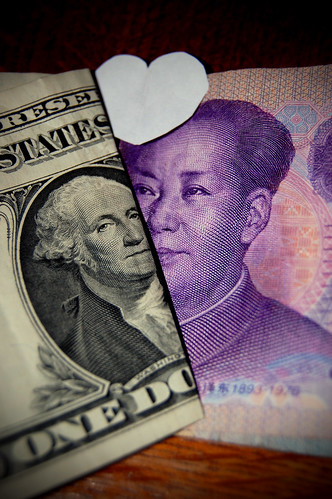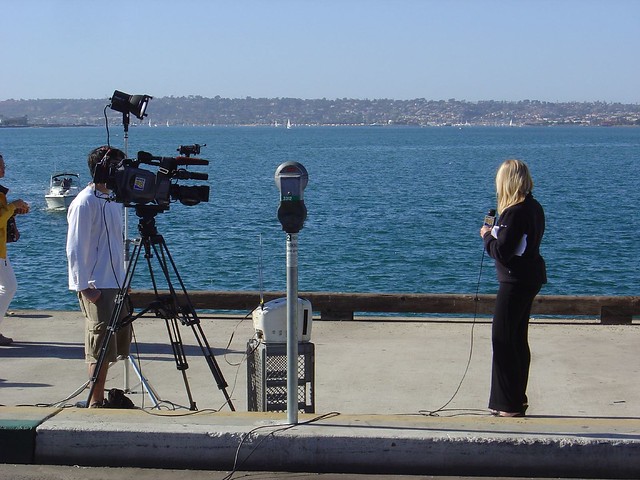 There was one conversation I used to hate more than any other. I used to brace myself for it; grit my teeth in anticipation.
There was one conversation I used to hate more than any other. I used to brace myself for it; grit my teeth in anticipation.
Here's how it would happen.
"Where are you from?" someone would ask, detecting that my accent wasn't quite British; something else was lurking just underneath.
"That's a long story," I would start to say, hoping to leave it at that and turn to some other, more interesting topic. But once someone has the scent that you're not a part of the tribe, that perhaps you don't belong, they never let it go. So I would explain. "My mother's Ukrainian / American, my dad's Dutch / Swiss / Indonesian, I grew up here, and -"
"Oh," they would say, stopping me. "You could become a British citizen, you know."
Then I would have to nod and smile, and perhaps bumble something along the lines of, "oh, well, yes, I suppose I could, now that you mention it, that's a rather good idea ..." Hugh Grant style, a polite stream of bashfulness that stood in for the lies, "nobody has ever suggested this before" and "clearly that's exactly what I need to do".
The implication was: "you could do this one thing and then you would belong!" It was as if being a part of the tribe would elevate me, somehow. The implication was that having the right sort of passport would make me the right sort of person, and I despised it.
There was exactly one time, every five years or so, when I ever wished I had been a British citizen. Although I could vote in local elections, I wasn't able to take part in the general elections that would help pick who would run the country. I couldn't help select a Prime Minister, but I cared deeply. I would pay close attention to the campaign pledges, flinch into my real ale when a politician mentioned immigration reform, and, once the polls were closed and results were announced, suck it up until next time.
Perhaps I could have become British, but that would have required - literally, in this case - giving up a part of who I was.
I grew up in Oxford, a few miles east of the university's picturesque dreaming spires, in a pebbledash duplex between a pub and a gas station. My high school's catchment area covered both my side of town - arguably the bad side, with its tiny houses and tower blocks - and the fancy North Oxford Victorians where the professors raised their children. High school is notorious for nurturing cliques, and England is notorious for class awareness. One friend's professor parent was very open about looking down on me because I came from the wrong side of town, and in a perverse way I'm thankful to him for his honesty; I'm not sure how many others did so behind my back. Meanwhile, many of the kinds from my end of town openly despised me for being visibly interested in learning. My parents are both highly academic, and I was overtly a computer geek who loved writing. As is the high school way, everyone picked on everyone else for the ways in which they didn't fit their ideal archetype.
By the end of high school, I was a nervous wreck, but I had also found the people I identified most strongly with: the people who were not easily described. I guess you could call us the people who weren't part of the other cliques. In some ways, that was a tribe, too, and we found strength in our friendships. These are people I love dearly and I still talk to some of them every day.  But I had also discovered the Internet, which felt like a magical, invisible layer on top of the world. Hidden in invisible corners there, where no-one else could find us, on newsgroups and IRC, not limited by geography, space or time, we reached out to each other. I believe we were the first generation of teenagers to make friends in this way. I think we were also probably the last to be allowed to travel and meet each other without supervision. We traveled across Britain to show up at "meets", where we acted like British teenagers do, loitering outside pubs, hanging out in parks, and cementing friendships that could not have been created any other way.
But I had also discovered the Internet, which felt like a magical, invisible layer on top of the world. Hidden in invisible corners there, where no-one else could find us, on newsgroups and IRC, not limited by geography, space or time, we reached out to each other. I believe we were the first generation of teenagers to make friends in this way. I think we were also probably the last to be allowed to travel and meet each other without supervision. We traveled across Britain to show up at "meets", where we acted like British teenagers do, loitering outside pubs, hanging out in parks, and cementing friendships that could not have been created any other way.
Our untribe grew with the Internet. It turns out that everybody is a niche. Everyone has their own complicated mix of interests, background, skills and personality, which is unique to us like a fingerprint. The fact that I have an individual background is not, in itself, unique to me. We all do. With the accessibility of international travel, as well as the ubiquity of international communication, more and more people have backgrounds and contexts that cross traditional borders.
Chris Anderson called this endless parade of uniqueness "the long tail". I don't know if it's a tail: over time, mainstream demographics have revealed themselves to be a ruse, a kind of statistical slight of hand that allows us to dehumanize collections of people, remove the characteristics that make them real, and average them out into buckets so they can be marketed to efficiently. Desires and demographic groups have been manufactured in order to sell; their glue is a kind of peer pressure, the desire to belong bringing with it manufactured social norms. But it's not a tail. In reality, there is no mass market. We are all part of an untribe.
As the Internet has matured, marketers are discovering new ways to sell and to target their messages. Commerce has adapted to the untribe. But a further cultural shift is still to come.
"I don't think you want to belong," someone once said to me, in reference to my outside-ness with respect to nationality. I think it was meant as a criticism, but it was completely true. I had always felt that by bending myself into the social norms of a particular group, I would lose - at least to an extent - the part of myself that didn't fit into those norms, unless it was nurtured in some other way. Most importantly, in a world where we can all make connections based on our individuality, why should an artificial group membership based on where we are born matter at all? To make the point bluntly, if we get along, why should I give a shit where you're from?
Nationality is an artificial demographic. There are more differences within nationalities than between them. Because of the Internet, the friendships we make, the business we negotiate, the media we consume and even the people we fall in love with are not bound by these borders. In this context, being proud of being from a particular place is ridiculous. One might as well be proud of rolling a double 6 in a game of Backgammon, and there are uncomfortable implications. By being born in the United States, say, are you inherently a better person than someone who was born in India? Would you give preference to someone from your home country over someone who wasn't? This is no longer a hypothetical question.
Nationalities no longer make sense as a tribe. In contrast, the Internet has allowed people to define themselves by their passionate interest groups. Consider fandoms, which always existed but previously had been relegated to photocopied fanzines and minor conventions. Those conventions are booming; fanzines are now major publications. Rather than define ourselves by things entirely out of our control, we can use the things we really care about; the tribes we have chosen for ourselves. Nobody will reject you from a convention. There is no entrance requirement.
Really what we're defining ourselves by are our values, of which our interests are a subset. It could be argued that this is one reason why politics have become more divided on the web: increasingly, we are either liberal or conservative. But I think this is an artifact of our moment in time, between the Internet's demographic fracturing and a necessary split from a two-party system. Representative democracy is a good idea, but our parties no longer represent us. If we are all part of an untribe, we need a more granular way of thinking about our values. Our governments are likely to fracture, too, to coalitions of smaller representative groups, but the result will be political structures that more closely resembles who we are as populations. I have to wonder if the same could be true of religions.
In a world where I can have a conversation with someone in Iran as easily as someone in Palo Alto, clinging to traditional borders is an anachronism. Traditional flag-waving patriotism feels like a relic from the past, because it is. We don't need to let go of these traditions and backgrounds entirely - history is a crucial part of who we are, and there's nothing wrong with advocating for a place you love - but we do need to accept our new reality. I am not arguing that ethnicities or sexualities are not a part of who we are, or that they should not be acknowledged, but I do think the aspects of ourselves that we choose are more important than the ones we do not. There is no need to pledge allegiance to a demographic, or discriminate against people who are not of ours. We are all people, connected to each other by our interests, our skills and our personalities.
There is so much to be gained by embracing this, and so little value - as always - in clinging meaninglessly to the past, and robbing people of their individuality. We are all different. The world is so much richer when we think of it in those terms.


 Share this post
Share this post

